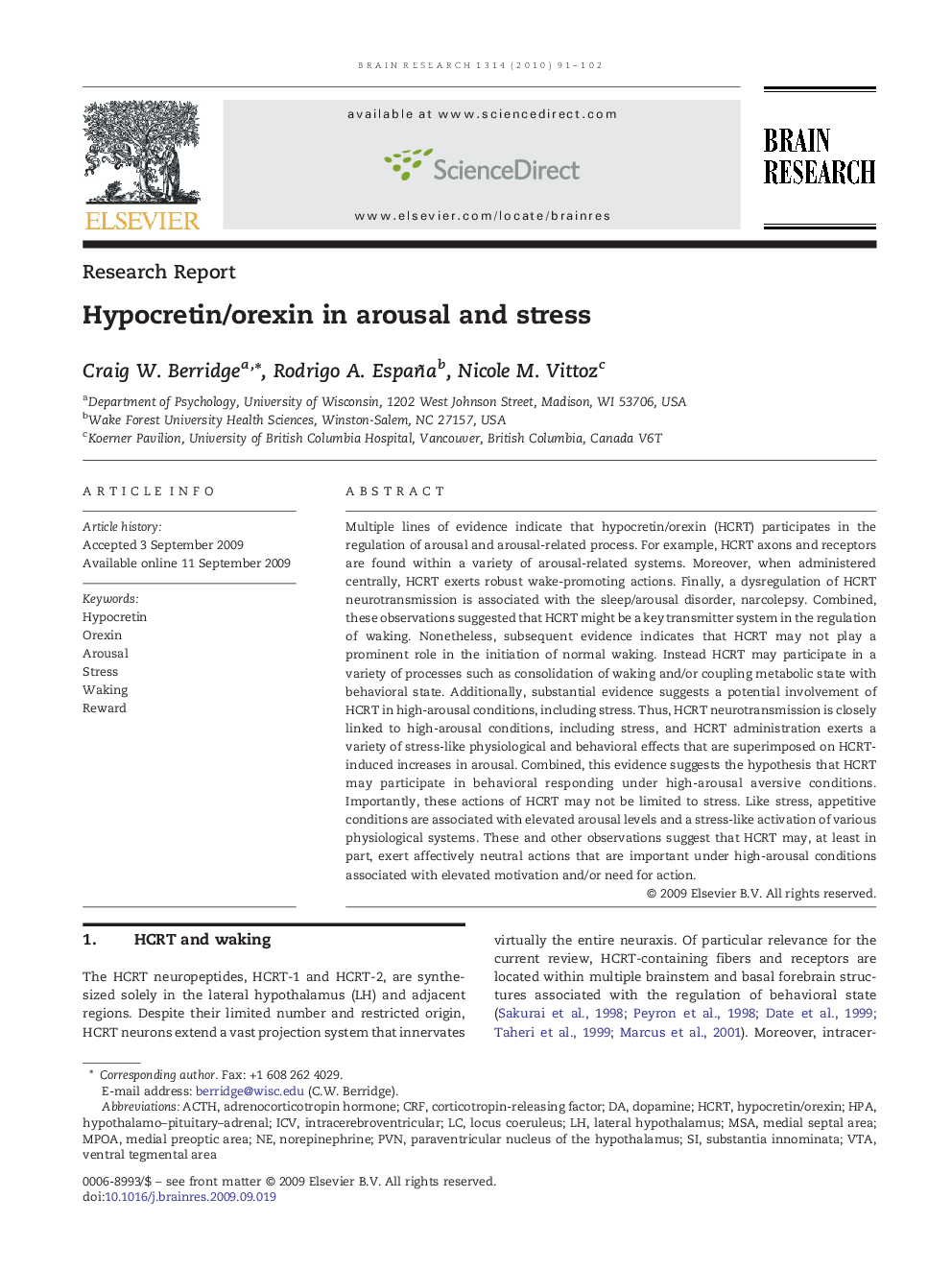| کد مقاله | کد نشریه | سال انتشار | مقاله انگلیسی | نسخه تمام متن |
|---|---|---|---|---|
| 4327376 | 1614125 | 2010 | 12 صفحه PDF | دانلود رایگان |

Multiple lines of evidence indicate that hypocretin/orexin (HCRT) participates in the regulation of arousal and arousal-related process. For example, HCRT axons and receptors are found within a variety of arousal-related systems. Moreover, when administered centrally, HCRT exerts robust wake-promoting actions. Finally, a dysregulation of HCRT neurotransmission is associated with the sleep/arousal disorder, narcolepsy. Combined, these observations suggested that HCRT might be a key transmitter system in the regulation of waking. Nonetheless, subsequent evidence indicates that HCRT may not play a prominent role in the initiation of normal waking. Instead HCRT may participate in a variety of processes such as consolidation of waking and/or coupling metabolic state with behavioral state. Additionally, substantial evidence suggests a potential involvement of HCRT in high-arousal conditions, including stress. Thus, HCRT neurotransmission is closely linked to high-arousal conditions, including stress, and HCRT administration exerts a variety of stress-like physiological and behavioral effects that are superimposed on HCRT-induced increases in arousal. Combined, this evidence suggests the hypothesis that HCRT may participate in behavioral responding under high-arousal aversive conditions. Importantly, these actions of HCRT may not be limited to stress. Like stress, appetitive conditions are associated with elevated arousal levels and a stress-like activation of various physiological systems. These and other observations suggest that HCRT may, at least in part, exert affectively neutral actions that are important under high-arousal conditions associated with elevated motivation and/or need for action.
Journal: Brain Research - Volume 1314, 16 February 2010, Pages 91–102